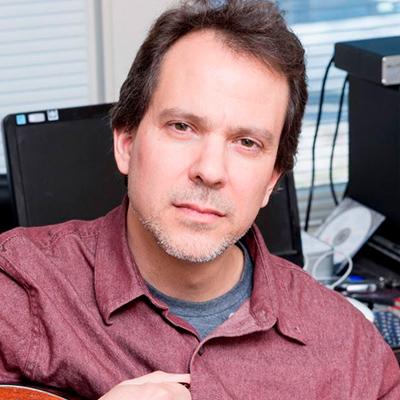By Dave Isaacs
You probably have a clear picture of what “production” means: the process of recording a song, and the musical and sonic decisions that go into it. This might be overseen in the studio by a producer and/or recording engineer, or created entirely by a single person in a computer workstation.
On the other hand, you may not be as familiar with the idea of preproduction. When an artist records a project, preproduction is the process of choosing songs and preparing the artist for the studio. Self-contained bands rehearse and refine their arrangements. Singers choose the key for each song and polish their interpretation. Frank Sinatra was supposedly meticulous in his preparation, carefully choosing the placement of every syllable, and if you’ve ever tried to copy his phrasing his attention to detail becomes apparent.
Songwriters, on the other hand, often send songs to the studio with nothing more than a work tape from the writers room. This doesn’t present a problem in a place like Nashville, where skilled producers and musicians bring songs they’ve never heard to life as a matter of course every day. With a minimum of effort, you can be virtually assured of a good sounding, professional demo with a convincing performance of the song.
However, there are two major drawbacks to this approach.
For one, the musicians will have to take the time to listen to the song, write a chart, and decide on an arrangement and feel. If you pay a per-song rate, this might not matter, but generally time is money in a recording studio and efficiency matters. Again, it’s not as is this presents a problem when working with professionals: good session musicians can write charts quickly and make arrangement decisions on the fly. But the other downside is that all they have to go on is what they were given. In other words, any limitations in your and your cowriters’ ability to perform the song will determine how much of your intent the pros in the studio will hear. They can fill in the gaps: tighten structure, find a groove, polish phrasing, and so forth – but they can’t read your mind.
Songwriters are focused on writing, of course, and so many don’t have the skill as players and singers that they will ultimately want to hear in the performance of the song. But that doesn’t mean their mental picture of the song isn’t always clear. Many (if not most) writers have a detailed sense of what the finished song should sound like, down to details of instrumentation and specific musical parts. But just as many lack the ability to articulate those ideas in a clear and effective enough way to get the point across in the streamlined and fast-moving environment of the professional demo studio.
Preproduction allows the writer to work out these ideas in detail, and create a way to efficiently communicate them to the players in the studio. This can require the assistance of a musical intermediary: it might be a producer, one of the musicians on the session, or a third party. This person can help you define the essential elements you need to hear in the song: melody, rhythm, and harmony.
1. If you’re not a strong singer, you may need to make sure that the melody on the work tape is exactly what a skilled vocalist would sing. There’s nothing wrong with allowing room for a singer’s style – in fact, you’ll get a much better performance when you let a singer sing instead of having to concentrate on every syllable. But if the recording they hear makes the melody clear, they’ll sing it as you presented it. On the other hand, I’ve been in sessions where the players were working from a rough recording with no discernible meter or definite pitch. The singer had to essentially write the melody herself. I’m confident that the songwriter had a better idea of what he wanted to hear than he was able to articulate, and the session singer did her best to follow the writer’s intent. But there’s no way of predicting whether what he heard in the finished demo was what he had imagined.
2. Groove and feel are absolutely essential in putting a song across. Rhythm is a big part of what defines a style, and the feel of the music can hook or lose a listener before the first word of the song. A writer with limited skills on an instrument might only be able to play a handful of rhythms, and if the right feel for the song isn’t one of them then there’s a good chance the producer or players will decide on something else. This can be a great thing – it’s thrilling when your song is brought to life by a great idea you wouldn’t have thought of yourself. But just as often, when the details are left to others they can go in a completely different direction than you intended.
That’s not to say you shouldn’t trust professionals – you absolutely should. But at the same time, recognize the reality that while of course they want you to be happy with the end result, their goal is a little different from yours. Their goal is to efficiently turn out a good sounding version of the song. Your goal is to end up with the best possible expression of your ideas. The more care you take to communicate them in a way that musicians understand, the more those goals will align.
3. As a rule, chords and details of the arrangement are not part of the songwriters’ intellectual property. This is partly because harmony is flexible: you can harmonize a given note in a variety of ways, so while a chord progression CAN define a song it can be changed without altering the tune. Some writers tend to use similar chord structures over and over, but might be open to exploring other ways the melody could be “set”. Others hear harmony in their heads but can’t find the right sound with the chords they know. These preliminary sessions allow you to take a closer look at whether the harmony is serving the melody in a way that’s natural and compelling.
The ultimate goal of preproduction for a writer is to make sure the song can be communicated to the pros in the studio in a way that stays as close as possible to the writers’ intent. Sometimes that does mean evaluating what works and what doesn’t, but most of all it’s simply a way of making sure your ideas are being clearly heard (and translated when necessary). You don’t need to be musically educated, although that certainly helps. Ideally, the person you’re working with will listen to the song, offer their assessment, and suggest potential improvements or alterations. Under the best circumstances, you’ll be asked questions and given choices rather than instructed to make changes. Without preproduction, changes sometime can be made in the studio without your input or prior knowledge. This way, you participate in those final evaluations.
Taking this time improves the entire process, from the actual session to your satisfaction with the finished track. Remember, the people you hire want you to be happy with the final product, and are happy to have direction when it’s given in a way that makes their job easier.
Many producers will include preproduction sessions as a matter of course, but generally when the song is part of a larger project like an EP or full length album. You shouldn’t assume it’s included, though. There are many ways a production agreement can be structured, so be clear with your producer whether time outside the recording session would be billed separately or accounted for as part of a package. Sometimes one of the musicians on the session can handle preproduction, as it’s sometimes the session leader that writes up the charts and gets preparatory tracks to the other players. You can also work with an outside arranger for an hourly or per-song rate. Regardless of how you do it, though, you’ll likely be glad you made the additional investment. The pros you work with will appreciate the thought and effort, and you’ll see a return both in the efficiency of the process and in the realization of your vision for the song.

Dave Isaacs is a musician, educator, songwriter, and performing artist, and a longtime NSAI workshop pro.
He teaches guitar and offers musical coaching and arranging for songwriters at his Nashville studio.





